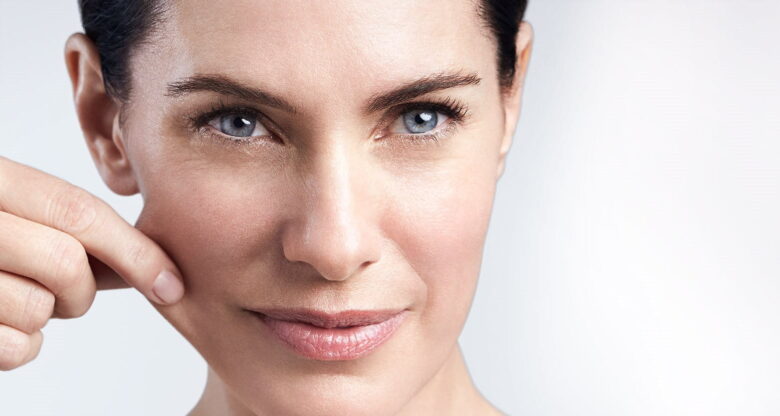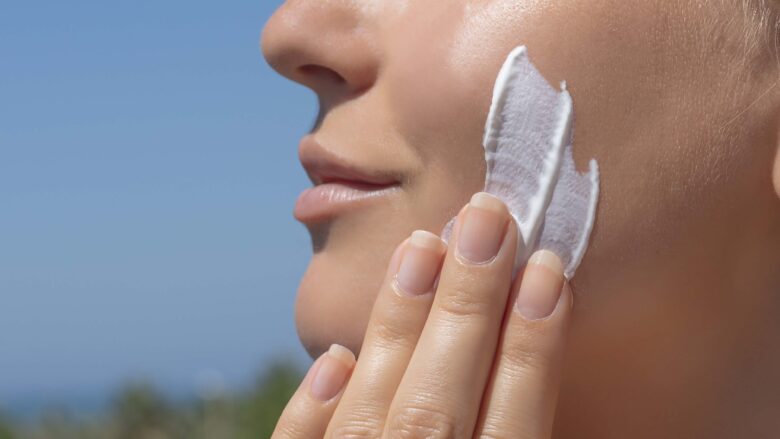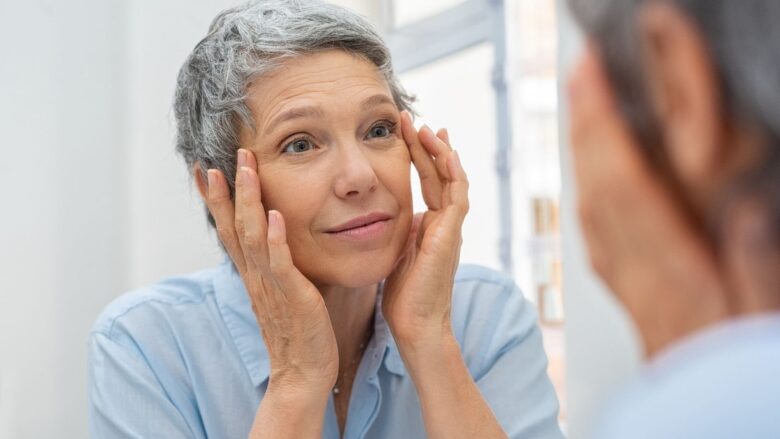Aging is a natural, irreversible process with symptoms we can minimize but never completely reverse or prevent. However, the American Academy of Dermatology Association warns that some bad habits can accelerate the so-called skin aging – those spots and visible lines and wrinkles on your face.
Aging prematurely can change people both outside and inside, bringing negative side effects like depression and the obsession of trying to disguise the signs with dozens of “miraculous” products. The good news is that it is up to you whether your skin ages quickly or naturally.
The environment and your daily lifestyle affect the process, so changing some habits and revising some choices can leave your skin youthful indefinitely. Several factors that directly influence skin aging include:
Contents
Genetics

Source: int.eucerin.com
Although skin aging is intrinsically linked to environmental factors, recent studies have shown that you can also inherit a faster or slower aging process.
By observing twins, the researchers determined that up to 60 percent of the skin aging variation between them could be attributed to genetic factors. Simply put, our genes can cause the skin to age more quickly.
In addition, factors such as gender and ethnicity affect the anatomy of the skin. Darker skin, for example, shows more natural protection from the sun.
In the case of men, the skin normally ages slower because collagen production remains active until much later compared to women.
Sun Exposure

Source: innoaesthetics.com
The sun is good for your body. Among other benefits, it activates and accelerates the production of a hormone called melatonin, which is essential to sleep well.
Sunlight also helps to strengthen our immune system. Although being exposed to the sun has a lot of positive effects, if done without protection, it also affects the skin: too much ultraviolet (UV) light can age your skin more quickly.
That’s why it is essential to protect your skin from the sun every day before leaving home. And not just when you go to the beach or the pool; even on a cloudy day, the sun’s rays are affecting your skin while you go to work or school.
It’s not always possible to hide in the shade, so adopt the following habits to protect your skin from the sun.
Wear Light Clothing
Wear light clothing that fully covers the body, such as long-sleeved cotton shirts, pants, and a wide-brimmed hat.
Apply Sunscreen
Apply sunscreen to your face daily, at least SPF 30 or higher. If you go to the beach, choose a water-resistant formula.
Skip the Tan Bed
Avoid tanning beds as they tend to accelerate and intensify the impact of UV rays on your skin.
Wear Proper Eyewear

Source: aao.org
Don’t forget that the sun also affects your eyes, especially over the years if they aren’t properly protected from UV light. The consequences of unprotected exposure ranges from damage to the cornea, muscular degeneration, and in the process, lead to decreased vision. Symptoms like blurred vision, a sensitivity to the light, easily tearing up, and even in a worst case scenario, blindness can occur.
To help prevent any irreversible damage, wear sunglasses on sunny days from a reputable retailer. You can also shop for glasses online in a variety of styles and colors. You can find the perfect pair of glasses for any sunny day occasion – whether a vacation or a picnic on a bright winter day. They can also be ordered with polarized lenses that reduce eye strain and help keep eyes healthier.
Unhealthy Diet

Source: integrisok.com
Several studies show that unhealthy diets – those high in sugar, processed meat, or carbohydrates – can also cause your skin and body to age prematurely. So eating healthy is essential to both look and feel good, as the benefits of a diet rich in fruits and vegetables (and avoiding sugar and junk food) go far beyond your skin.
Here are some things you should reduce or avoid to keep your skin permanently healthy:
- Fried foods.
- Butter
- Sugar
- Soft and energy drinks.
- Processed meat.
By the way, too much drinking and smoking also accelerate skin aging: alcohol helps to dehydrate your skin over time, leading to wrinkles and visible lines, while the smoke gives your face an unhealthy appearance.
Stress and Sleep

Source: monteloeder.com
When you get little sleep or stay up all night, the effect on your body is devastating (especially if you have an important meeting the next day). To make matters worse, it also causes your cells to age faster.
At the heart of it all is stress, which can be the cause of sleepless nights or a side effect of them (you feel stressed the next day because you slept little or poorly).
The sum of these two things encourages your brain to produce more of the hormone cortisol, which further blocks collagen and affects your skin’s health. So to keep your skin healthy, you should alleviate the root causes of stress and allow your body and mind to get the rest it needs at night.
Look Good and Live Better
The first signs of premature or accelerated skin aging usually appear in early adulthood. As they are linked to your lifestyle, some people identify wrinkles, age spots, and permanent lines on the face earlier than others.
Now that you know the four main causes of skin aging, you can also change some habits to protect your skin and ensure it stays fresh and youthful for longer. Some damage can be repaired over time, but ideally, you should start protecting yourself from a young age.
